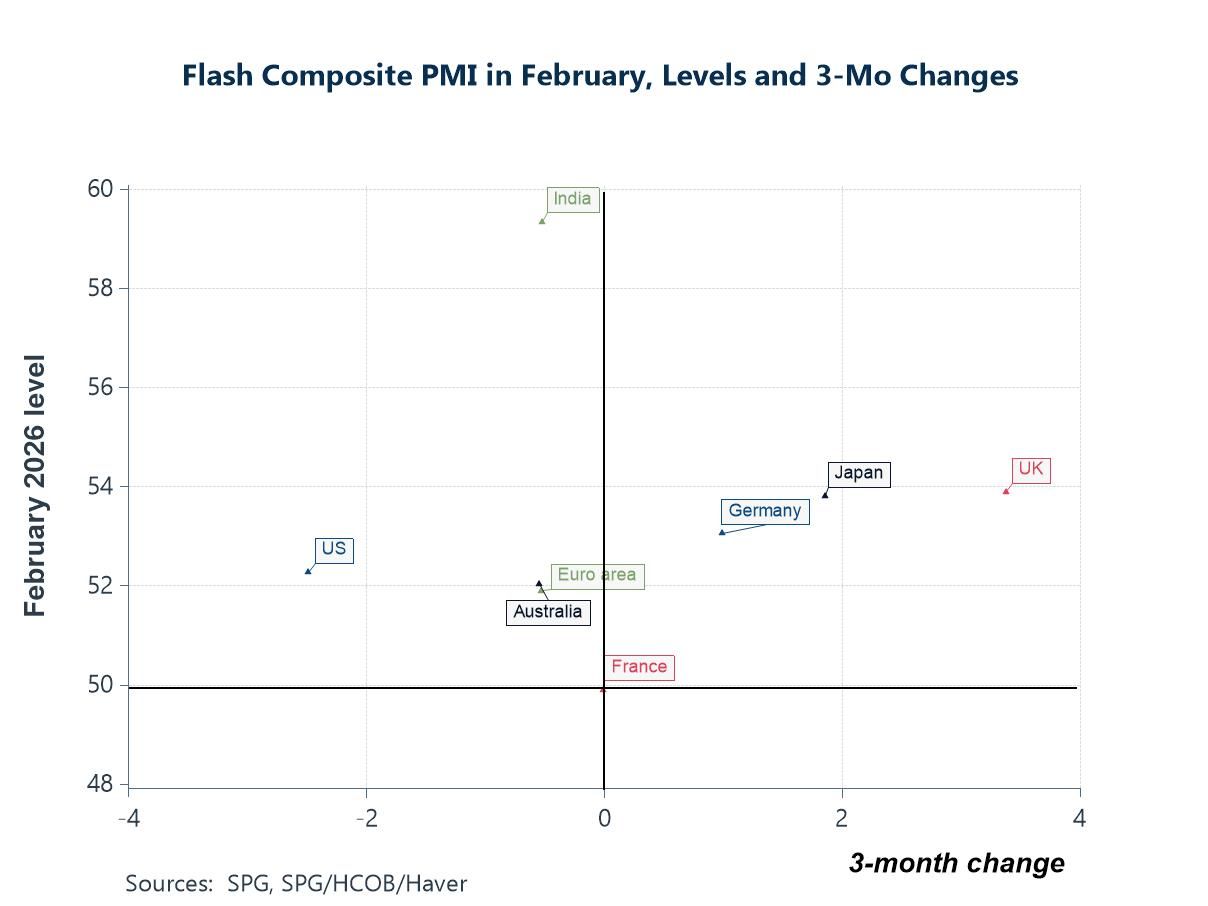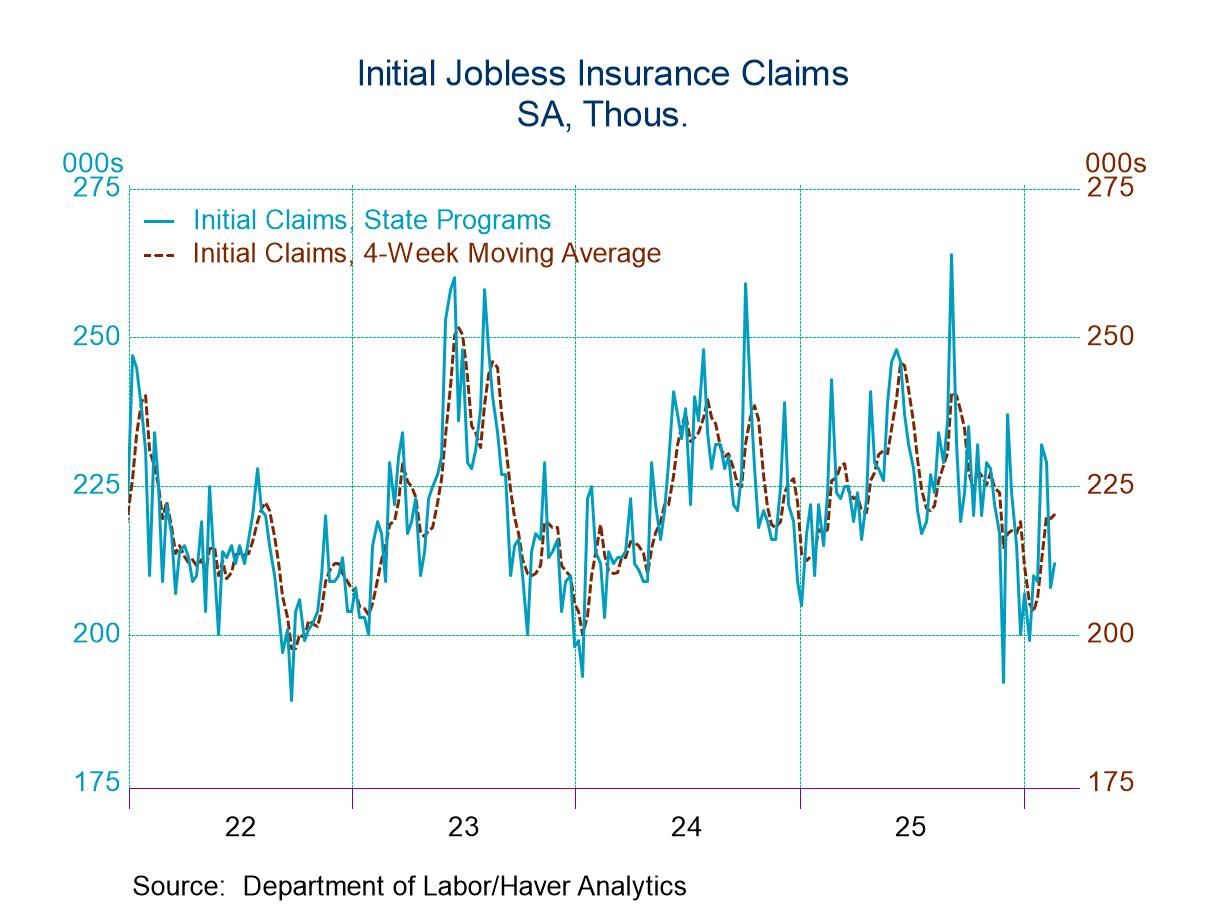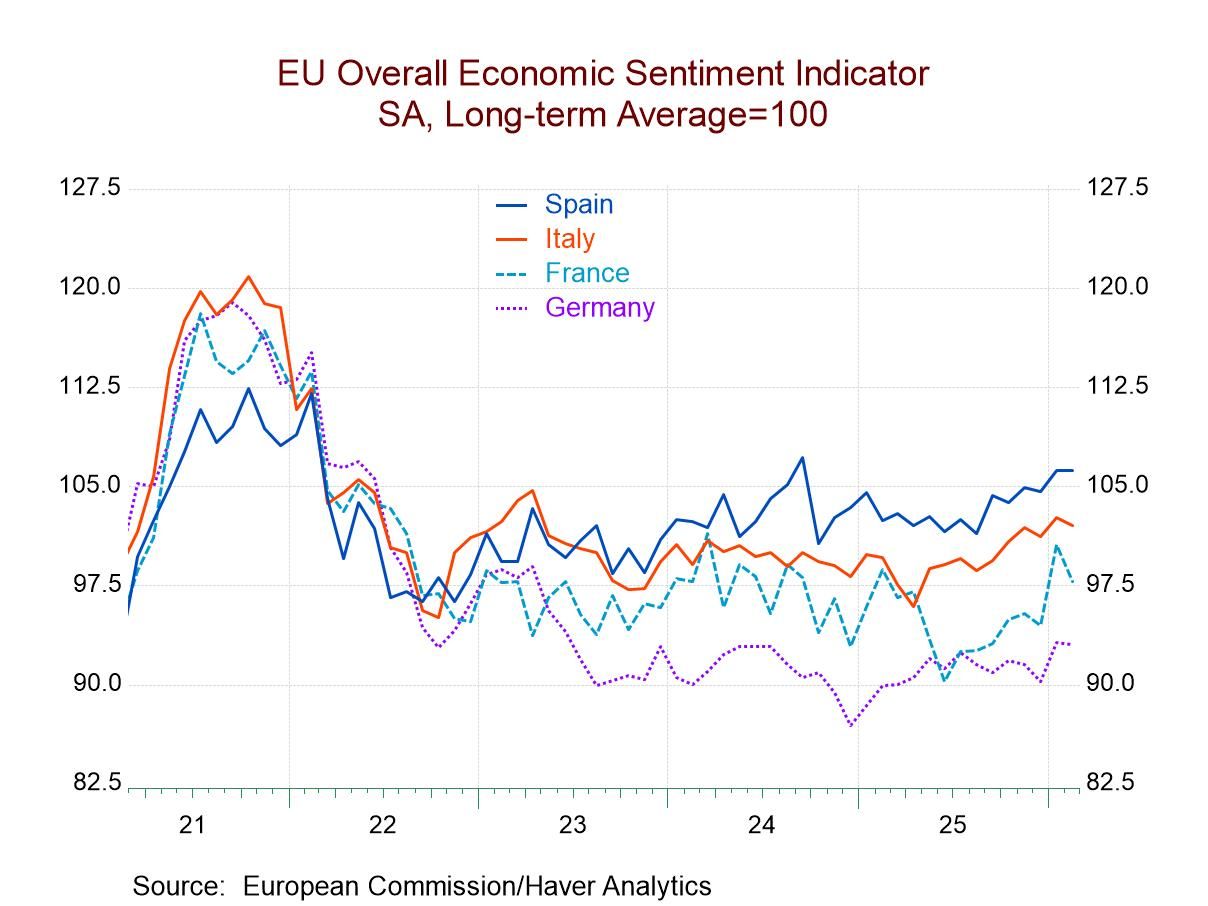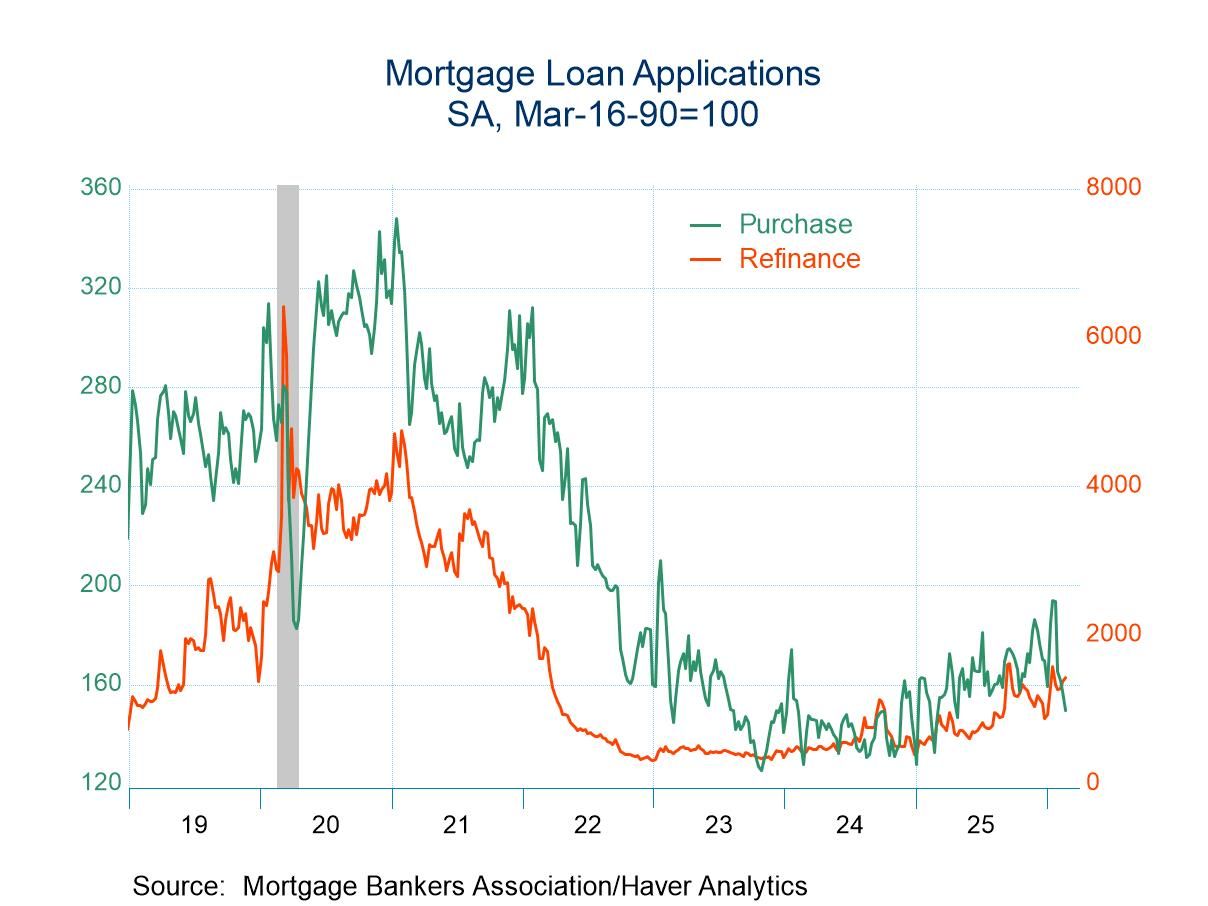 Global| Jan 29 2003
Global| Jan 29 2003Mortgage Applications Firm
by:Tom Moeller
|in:Economy in Brief
Summary
The index of mortgage applications, compiled by the Mortgage Bankers Association, surged 6.4% last week (117.3% y/y) following two consecutive weeks of moderate decline. Mortgage applications to refinance rose 7.8% (232.3% y/y) and [...]
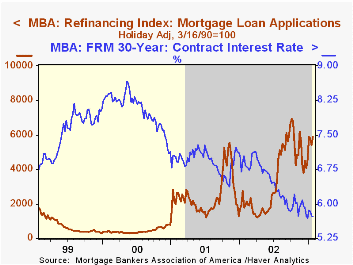
The index of mortgage applications, compiled by the Mortgage Bankers Association, surged 6.4% last week (117.3% y/y) following two consecutive weeks of moderate decline.
Mortgage applications to refinance rose 7.8% (232.3% y/y) and recouped nearly all of the decline during the prior two weeks.
Mortgage applications for home purchase rose a moderate 2.9% (11.3% y/y).
Interest rates on conventional 30 Year mortgages fell slightly to 5.72% versus 7.04% a year ago. Rates on a 15 Year mortgage averaged 5.15% versus 6.49% a year earlier.
For analysis by the Federal Reserve of mortgage refinancing trends, click here.
| MBA Mortgage Applications (3/16/90=100) | 1/24/03 | 1/17/03 | 2002 | 2001 | 2000 |
|---|---|---|---|---|---|
| Total Market Index | 1,171.2 | 1,100.3 | 799.7 | 625.6 | 322.7 |
| Purchase | 365.5 | 355.3 | 354.7 | 304.9 | 302.7 |
| Refinancing | 5,858.1 | 5,433.4 | 3,388.0 | 2,491.0 | 438.8 |
by Tom Moeller January 29, 2003
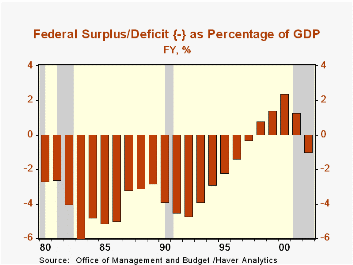
The US Congressional Budget Office issued an update of its outlook for the Federal Budget for the next ten years. For the complete report, go to www.cbo.gov.
The baseline forecast (if current policies remain in place) is now for a FY 2003 deficit of $199 bil., or 1.9% of GDP. That's versus a deficit of $158 bil. last fiscal year.
The budget is projected to return to surplus in FY 2007, one year later than forecast in August.
For the ten years ended 2013, surpluses are expected to total $1,336 trillion. That's higher than the 10 Year estimate of $1,015 trillion made in August because of the dropping of FY 2002.
FOMC Leaves Interest Rates Unchangedby Tom Moeller January 29, 2003
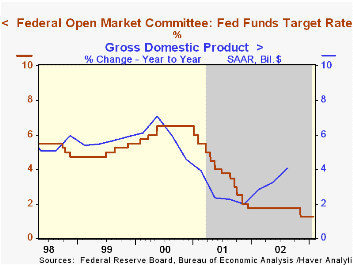
The Federal Reserve left the Federal Funds Target Rate unchanged at 1.25%, the lowest level since 1961. The decision was unanimous and as expected by most economists.
The discount rate remained unchanged with primary credit available at 2.25%. On January 9th the Fed changed the discount rate from a subsidized to a penalty rate. Primary borrowers are banks the Fed deems are financially healthy.
The press release which accompanied the Fed’s action contained the following statement. "Oil price premiums and other aspects of geopolitical risks have reportedly fostered continued restraint on spending and hiring by businesses. However, the Committee believes that as those risks lift, as most analysts expect, the accommodative stance of monetary policy, coupled with ongoing growth in productivity, will provide support to an improving economic climate over time."
Here is the complete text of the Fed's latest press release.
For an analysis of the efficacy of US monetary policy by the Federal Reserve Bank of St. Louis go to frb.st.louis.
Further discussion by the St. Louis Fed contrasting the structure and day-to-day operations of the US and European Central Banks can be found here.
Tom Moeller
AuthorMore in Author Profile »Prior to joining Haver Analytics in 2000, Mr. Moeller worked as the Economist at Chancellor Capital Management from 1985 to 1999. There, he developed comprehensive economic forecasts and interpreted economic data for equity and fixed income portfolio managers. Also at Chancellor, Mr. Moeller worked as an equity analyst and was responsible for researching and rating companies in the economically sensitive automobile and housing industries for investment in Chancellor’s equity portfolio. Prior to joining Chancellor, Mr. Moeller was an Economist at Citibank from 1979 to 1984. He also analyzed pricing behavior in the metals industry for the Council on Wage and Price Stability in Washington, D.C. In 1999, Mr. Moeller received the award for most accurate forecast from the Forecasters' Club of New York. From 1990 to 1992 he was President of the New York Association for Business Economists. Mr. Moeller earned an M.B.A. in Finance from Fordham University, where he graduated in 1987. He holds a Bachelor of Arts in Economics from George Washington University.



